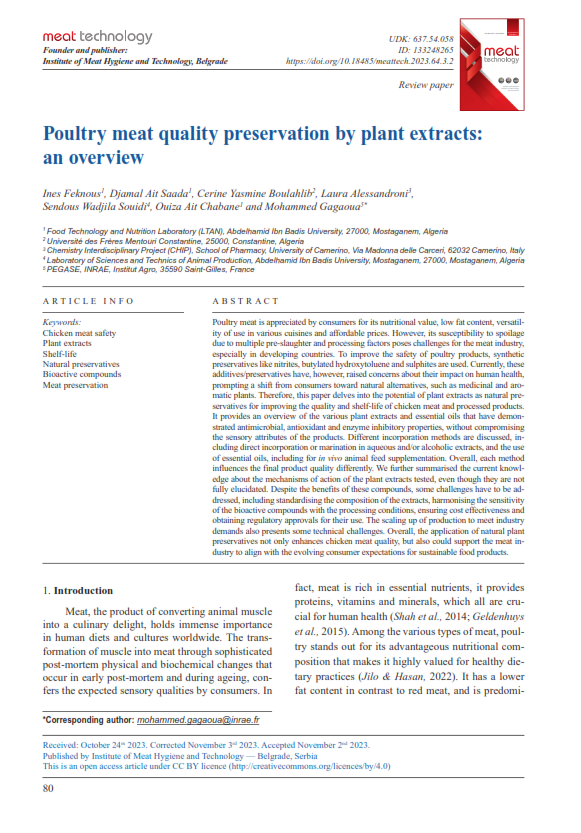Poultry meat quality preservation by plant extracts: an overview
Abstract
Poultry meat is appreciated by consumers for its nutritional value, low fat content, versatility of use in various cuisines and affordable prices. However, its susceptibility to spoilage due to multiple pre-slaughter and processing factors poses challenges for the meat industry, especially in developing countries. To improve the safety of poultry products, synthetic preservatives like nitrites, butylated hydroxytoluene and sulphites are used. Currently, these additives/preservatives have, however, raised concerns about their impact on human health, prompting a shift from consumers toward natural alternatives, such as medicinal and aromatic plants. Therefore, this paper delves into the potential of plant extracts as natural
preservatives for improving the quality and shelf-life of chicken meat and processed products. It provides an overview of the various plant extracts and essential oils that have demonstrated antimicrobial, antioxidant and enzyme inhibitory
properties, without compromising the sensory attributes of the products. Different incorporation methods are discussed, including direct incorporation or marination in aqueous and/or alcoholic extracts, and the use of essential oils, including
for in vivo animal feed supplementation. Overall, each method influences the final product quality differently. We further summarised the current knowledge about the mechanisms of action of the plant extracts tested, even though they are
not fully elucidated. Despite the benefits of these compounds, some challenges have to be addressed, including standardising the composition of the extracts, harmonising the sensitivity of the bioactive compounds with the processing
conditions, ensuring cost effectiveness and obtaining regulatory approvals for their use. The scaling up of production to meet industry demands also presents some technical challenges. Overall, the application of natural plant preservatives
not only enhances chicken meat quality, but also could support the meat industry to align with the evolving consumer expectations for sustainable food products.





